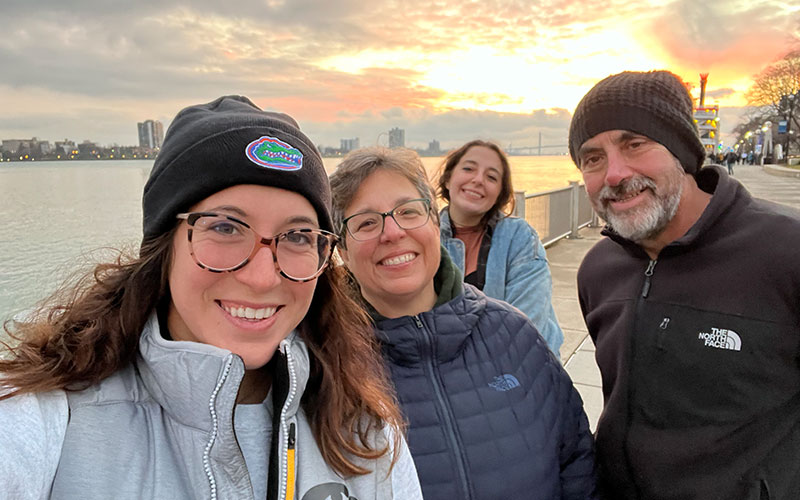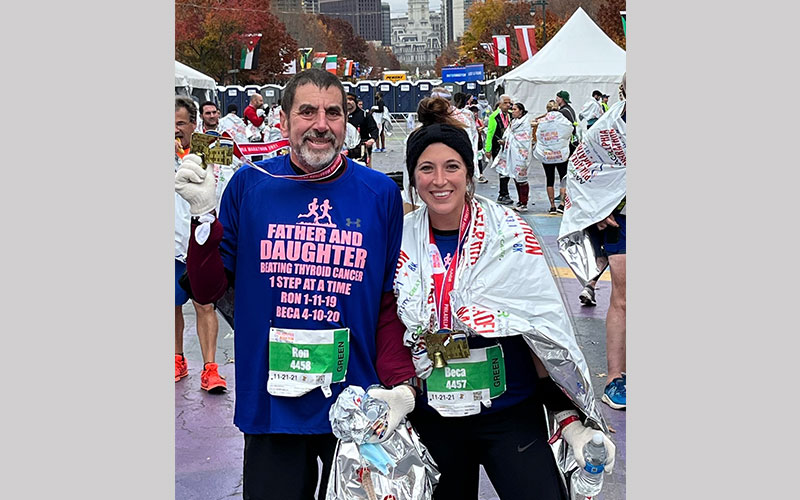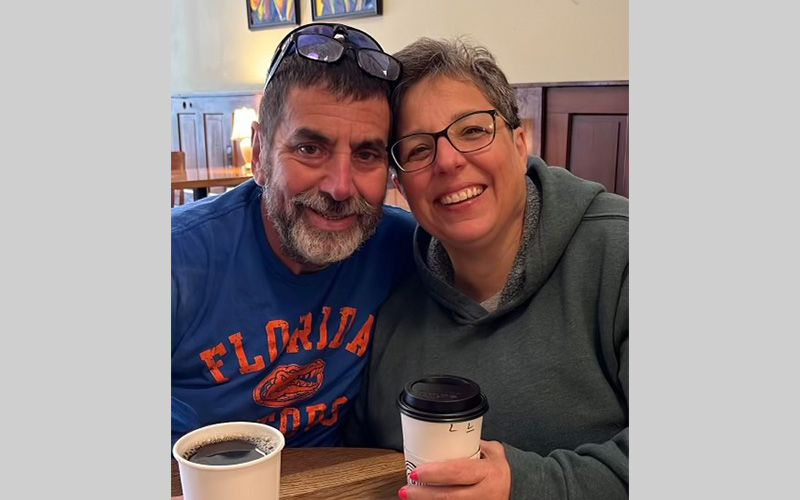Back to Baseline
In his mid-fifties, an infection in his right ear changed everything for Ronald Maynor.
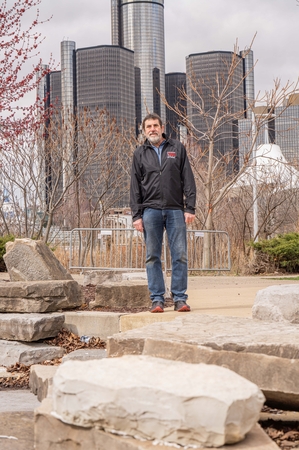 “I had hearing issues but thought nothing of it at first,” says retiree Ronald, now 64. “But when the symptoms cleared, I still couldn’t hear out of my right ear.”
“I had hearing issues but thought nothing of it at first,” says retiree Ronald, now 64. “But when the symptoms cleared, I still couldn’t hear out of my right ear.”
Doctors initially told Ronald it might be temporary, that it was just lingering effects from the infection. But as weeks turned into months, the reality set in.
“My hearing was less than 5% on my right side,” Ronald says. “I could hear faint sounds but couldn’t make out words. It was upsetting.”
Growing up in Detroit and working around loud noises as a sheet metal project manager, Ronald had experienced some minor hearing issues, but nothing like this. After his ear infection and near total hearing loss in his right ear, the impact on his daily life was dramatic. At work, he struggled to participate in meetings and had to turn his head completely to hear co-workers. Even simple joys, such as attending a comedy show at the Fox Theatre with his family, became frustrating experiences.
“I missed almost every punchline,” Ronald says. “I couldn’t understand what was going on. It was isolating.”
A long road
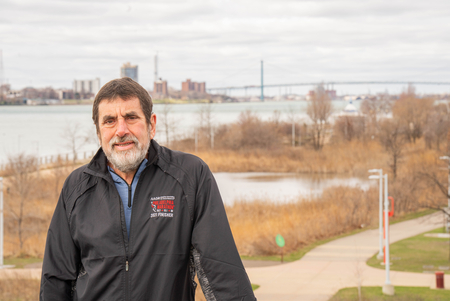 Ronald tried hearing aids, but they couldn’t fully restore his hearing or improve his ability to tell where sounds were coming from. “It felt like half my world was muted,” he says.
Ronald tried hearing aids, but they couldn’t fully restore his hearing or improve his ability to tell where sounds were coming from. “It felt like half my world was muted,” he says.
It wasn’t until he had a routine visit to his audiologist that Ronald learned about cochlear implants.
A cochlear implant is a surgically implanted electronic device that can restore useful hearing and provide improved communication abilities for individuals who receive little or no benefit from appropriately fit hearing aids. A cochlear implant transforms sound into electrical signals and uses those signals to directly stimulate the hearing nerve.
It was good timing. Ronald’s audiologist told him that there had been a recent change to insurance rules. In the past, someone typically had to be deaf in both ears to have cochlear implants covered, but now many insurance companies were covering a single implant procedure for people deaf in only one ear.
Ronald’s audiologist recommended he see a specialist at Henry Ford Health. During his first appointment at Henry Ford Hospital in Detroit, he met with Kristen Angster, M.D., an otolaryngologist (ear, nose and throat physician, or ENT), who specializes in ear conditions, including hearing loss. Dr. Angster explained how cochlear implants could transmit sounds directly to the auditory nerve, bypassing damaged parts of Ronald’s ear.
“I was nervous about surgery, but the idea of getting back even part of my hearing was worth it,” he says. “Dr. Angster walked me through every step, from the surgery to what recovery would look like and how it might even take 12-18 months for my brain to adapt, but for many people, it can be life-changing. I felt ready to give it a shot.”
As Ronald prepared for surgery, he was hit with delays. COVID-19 slowed down the timeline. Then they discovered a cyst that was close to the surgery location, so it had to be removed first. This was done by Benjamin Barbetta, M.D., DMD, an oral surgeon and member of the ENT team at Henry Ford Health.
“It was a long wait,” Ronald says, “but my team was there for me through it all.”
Finally, after months of anticipation, he had his procedure.
Getting the most out of life
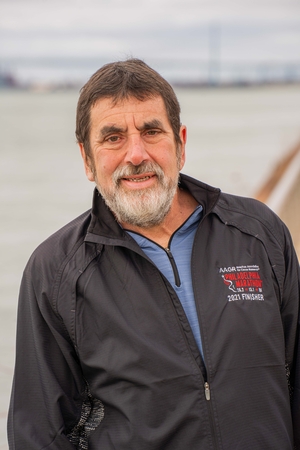 Several weeks after cochlear implant surgery, Ronald had his “activation day,” the appointment where the device is officially turned on. He felt a mix of hope and nerves.
Several weeks after cochlear implant surgery, Ronald had his “activation day,” the appointment where the device is officially turned on. He felt a mix of hope and nerves.
“I was scared that maybe nothing would happen,” he says. “But when they turned it on, I could hear something right away. The sounds were tinny and strange, but I could make out words. It was emotional—I was hearing through that ear for the first time in 10 years and it was amazing. I cried.”
His team encouraged him to do exercises, such as listening to podcasts or audiobooks through his cochlear implant alone to help his brain adapt to the new way of processing sound.
“I stuck with it,” Ronald says. “At each follow-up, my hearing got better and better. My audiologist even said my progress was off the charts.”
Ronald’s new cochlear implant changed his life in other ways.
“Now, I can sit in a restaurant and actually follow conversations without turning my head,” he says. “I can watch shows with my family, and for the first time in years, I went to a Bruce Springsteen concert and heard every word.”
His relationships have also improved, especially with his wife and children.
“My family no longer has to repeat everything or shout just to get me to hear,” he says. “My wife can talk to me in the car, and I don’t have to turn my head every time she speaks.”
One of his most memorable experiences was when Ronald was with his wife at home and she was on the phone ordering dinner, and not on speaker.
“She was 12 feet away from me on my right side, ordering me a salad, and I heard the waitress speaking through the phone. She asked my wife, ‘what dressing?’ and I looked at my wife and said, ‘Thousand Island.’ She was shocked. She said, ‘You heard that?’”
Ronald is also getting more out of old hobbies, including running with friends.
“Before, I’d always position myself so that my good ear was facing everyone,” he says. “Now, I can run on any side and keep up with the conversation.”
Reflecting on his journey, Ronald feels as though he’s been given a second chance.
“I tell people that Henry Ford gave me back half my world. They truly changed my life.”
.svg?iar=0&hash=F6049510E33E4E6D8196C26CCC0A64A4)

/hfh-logo-main--white.svg?iar=0&hash=ED491CBFADFB7670FAE94559C98D7798)
